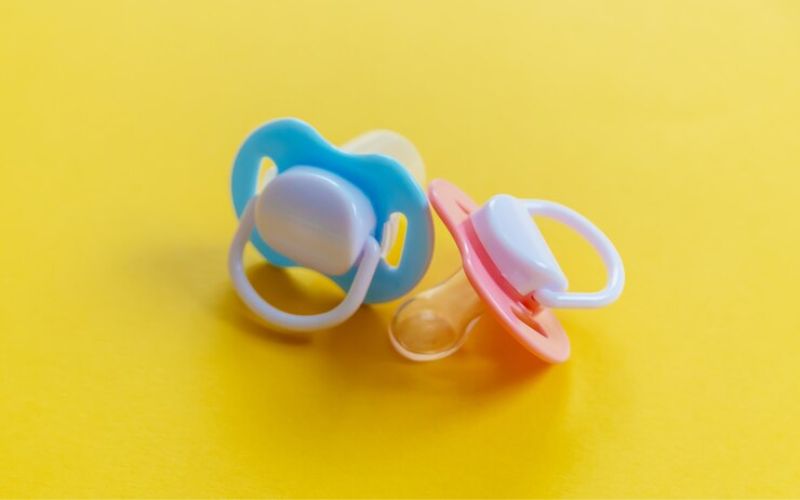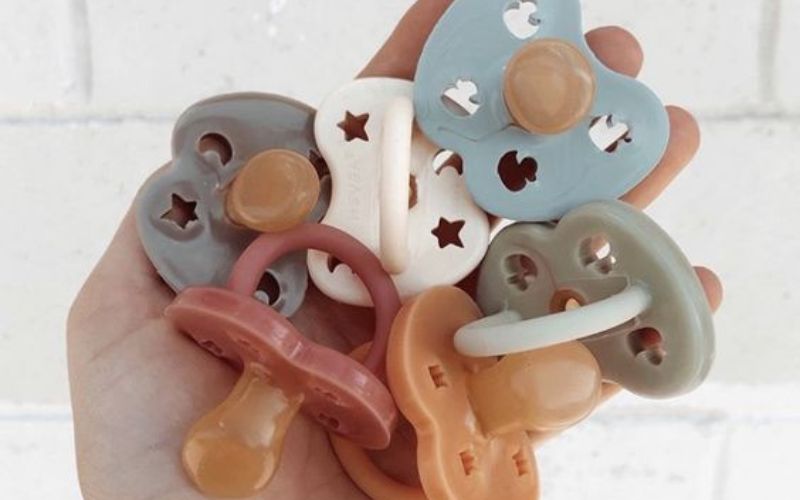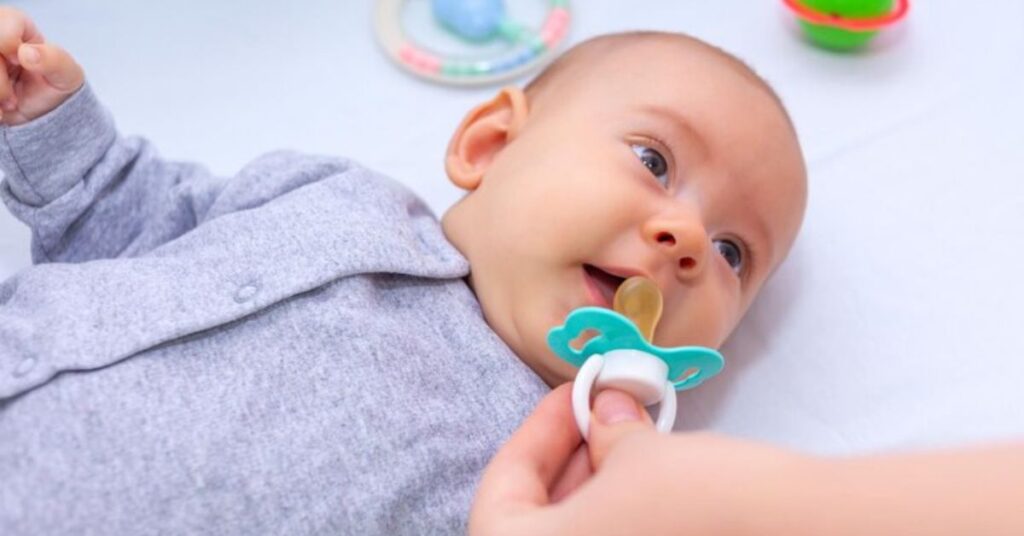Last Updated on September 2, 2023 by Muhammad Sohaib
Welcoming a newborn into the world is a joyous occasion filled with countless precious moments.
Babies have a unique way of communicating their preferences and discomfort, often leaving parents puzzled.
One common behavior that many infants exhibit is pushing their pacifiers out with their tongues. This adorable yet perplexing action sparks curiosity among parents and caregivers.
In this article, we’ll explore into this intriguing phenomena, examine its causes, and throw light on the developmental issues related to this behavior.
Understanding the Basics
Let’s talk about pacifiers and their significance in a baby’s life before getting into the details to provide the groundwork.
What is a Pacifier?

A pacifier, also known as a soother or a dummy, is a small, nipple-shaped device designed for babies to suck or chew on.
They typically consist of silicone or latex and have multiple functions.
The ‘Pushing Out’ Phenomenon
Now, let’s address the main subject of this article: why do babies push pacifiers out with their tongues?
The Reflex Theory
This behavior can sometimes be explained by an infant’s inherent reflexes. Strong sucking reflexes are present at birth in babies, which is essential for feeding.
However, when they’re not hungry or satisfied, they may engage in non-nutritive sucking, using pacifiers.
Pushing the pacifier out might be their way of regulating the flow of milk or controlling the amount they consume.
Developmental Milestones
Oral Motor Skills
As babies get older, they learn to control and coordinate their tongues as well as other oral motor skills.
Pushing the pacifier out could be a sign of their increasing ability to manipulate objects with their mouths.
Teething Troubles
Babies may endure discomfort while getting their first set of teeth. The pressure from their emerging teeth may cause them to push the pacifier out as a way to relieve discomfort.
Parental Concerns
Is It a Sign of Discomfort?
Parents often wonder if their baby’s act of pushing the pacifier out indicates discomfort or dissatisfaction.
It’s important to take other reasons like hunger, diaper changes, or weariness into account, even though it may be related to teething or feeding issues.
Should You Be Concerned?
In most cases, the act of pushing out a pacifier is entirely normal. However, it is advised to see a pediatrician if it is accompanied by severe fussiness, trouble feeding, or other strange behaviors.
Encouraging Healthy Pacifier Use
Timing Matters
To ensure that your baby benefits from pacifier use without any issues, it’s crucial to introduce it at the right time.
Experts recommend waiting until breastfeeding is well-established, typically around 3-4 weeks of age.
Limit Usage
Although pacifiers are beneficial, excessive use might impair speech development and teeth alignment. As your child gets older, reduce pacifier use.
Pacifier Size and Shape

Ensure that you are using the right size and shape of pacifier for your baby. An ill-fitting pacifier can be more prone to being pushed out.
Experiment with different pacifier styles to find the one that your baby prefers.
FAQs
Can pushing the pacifier out be a sign of teething?
Yes, the pressure from emerging teeth can lead to discomfort, causing babies to push their pacifiers out.
Is it normal for a baby to push the pacifier out with their tongue?
Yes, it’s entirely normal for babies to push their pacifiers out with their tongues as part of their natural oral development.
Does the pacifier pushing reflex indicate a problem?
In most cases, no. However, if it interferes with feeding or appears excessive, consult a pediatrician.
Can I help my baby learn to use the pacifier more effectively?
Yes, you can gently guide your baby during feedings to help them learn to suck on the pacifier effectively.
What type of pacifier is best for my baby?
Choosing the right pacifier, one that is age-appropriate and comfortable for your baby is crucial for their comfort and development.
When does the rooting reflex typically disappear?
The rooting reflex gradually diminishes as a baby grows and becomes more adept at controlled movements, usually around 4-6 months of age.
Conclusion
In conclusion, the habit of babies pushing pacifiers out with their tongues is a common and natural behavior.
It often relates to their developmental milestones, oral motor skills, and their way of communicating their needs.
As parents, understanding this behavior can help you respond to your baby’s cues more effectively.






